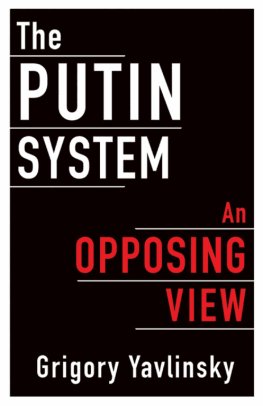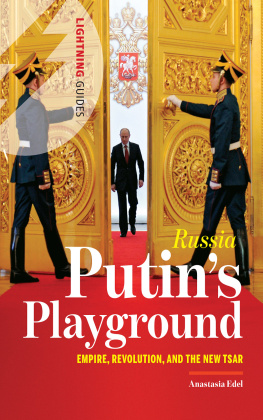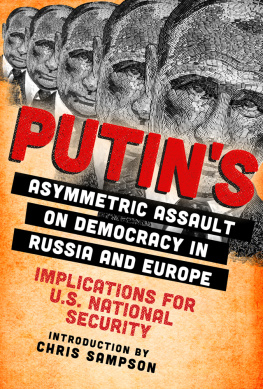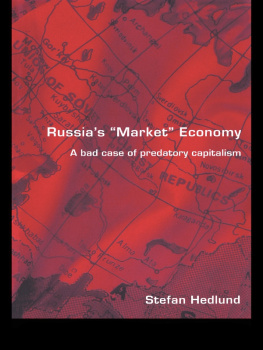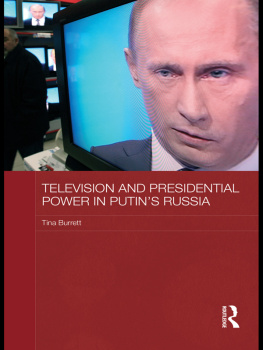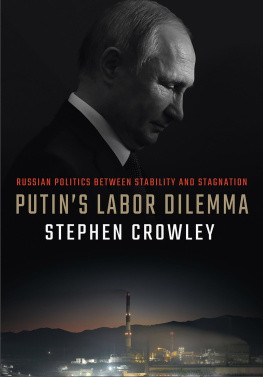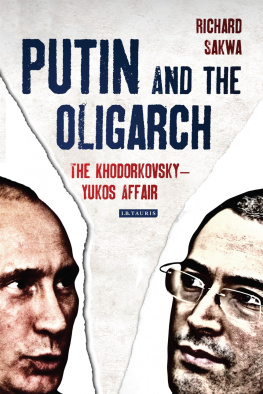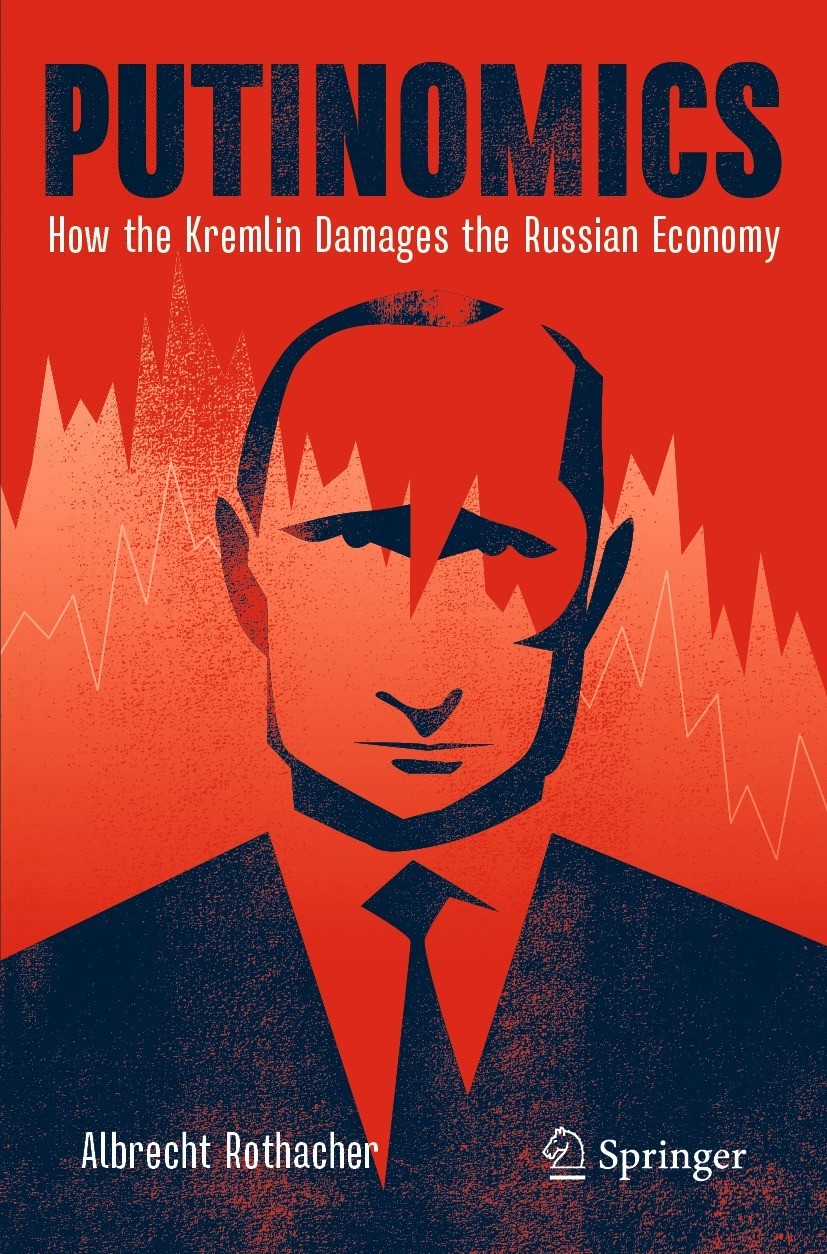Abstract
The introduction usefully summarizes the results of this monograph: How the narrowly based St. Petersburg clique of former KGB officers around Putin took control of the semi-privatized energy sector, muzzled or expropriated the Yeltsin oligarchs, and since three decades have set up their own state based management and control of key sectors of the Russian economy: oil, gas, minerals, armaments, banks, aviation and railways. Their self-serving and unpredictable rule by law continues to encourage endemic corruption and capital flight and to discourage investments, both foreign and domestic, the development of SMEs and the urgently needed diversification of Russias raw material based economy.
Russia is a country of surprises, positive and negative. I remember back in 1980, when flying from Niigata in Japan to Khabarovsk (Vladivostok was still a forbidden city) to take the Transib to Berlin via Moscow and Minskas a doctoral student I had plenty of timea customs officer immediately fished a dissident book out of my rucksack, and judging from my East German experiences I was sure never ever to see it again. Fifteen minutes later his boss, the chief of Khabarovsk customs, came and handed the book back to me and said: Oh, I see you read very interesting stuff. May God bless your journey! And this was in the middle of Brezhnevs communism.
So, Russia remained a life-long intellectual and political passion. I have dealt with Russia when posted as a Counsellor at the EU Delegation to OSCE in Vienna during 20062010, as an exchange diplomat at the Quai dOrsay during 20152017 and more recently as a principal administrator in charge of bilateral economic and trade issues with Russia at the European External Action Service in Brussels. During these years I had plenty of often fascinating exchanges with Russians in power like ministers, ambassadors, diplomats, lobbyists and spies, but surely more interestingly ones with those who were out of power and were often incredibly courageous and perceptive dissidents, scholars and journalists, and also with those who were in-between (like I would have been).
So for me, given Russias intellectual and enormously rich literary heritage, the question of her belonging to Europes civilization is not an issue, far from it. Rather, Russia conserves many of the traditional values which have become abused in the West. Yet the question is about governance. And there have to be very big question marks, as the reader will see.
This book is based on public sources which are duly quoted. Needless to say that my conclusions are all personal and do not represent the positions of my previous employer. Secrets are not revealed. So, there is no need for libel suits or for GRU-Speznaz operations to shorten my life expectancy.
Russia is by far the largest country on earth, which as various invaders, from Napoleon to Hitler, have shown, it is practically invincible. Yet, its population stagnates at 143 million, even after the repatriation of millions of ethnic Russians from Central Asia (often former deportees and their offspring) and after adding on some 2.5 million Crimeans forcefully in 2014. Two million of their best and brightest have left during the last 10 years. There was $350 billion in capital flight for good and bad reasons. Three million businessmen were prosecuted for shakeouts. As a result of this hostile economic environment and in spite of the great talents of Russian graduates in mathematics and in the sciences, there is little innovation and economic stagnation. The country technologically simply falls further behind the West and China.
Basically, Russia now appears a corrupt petro-state with huge demographic problems, with its working population shrinking rapidly. Deaths by accidents, violence, alcohol, drugs, abortion and transmittable diseases (from hepatitis to AIDS), with which a neglected health sector cannot cope, have taken their toll. Male live expectancy still hovers around 66. Women, who are wiser, live a decade longer. By the time Putin is likely to leave his office (one way or the other), Russia will have less inhabitants than Turkey, Nigeria or the Congo, with its GDP remaining at the level of Spain and much below Italy. So much for a presumptive world power.
A total 110 individuals (including Putins cronies, his relatives and himself) control 35% of Russias wealth, while 50% of Russian households have a fortune of $870 or lower. Again, this is not Angola or Nigeria, but happens in an East-European civilization. In short, Putins policies have led Russia into a lower-middle-income trap, from which there is no escape, given the weakness of the manufacturing and service sector, unless competition and property protection legislation is enacted effectively, and productive FDI is genuinely encouraged. It is as simple as that.
Failing this Russia remains dependent on the unpredictable vagaries of the global commodities markets and of the fluctuations of the world oil prices in particular. At $45 per barrel Russias budget will be ok, but below that it has a serious problem. This surely is not a sustainable policy.
As the events of the crises of 1998, 2008, 2014 and 2020 proved, such external shocks could not be absorbed by national emergency funds alone for long. And Putins business model of gas exports to subsidize Russian wasteful heavy industry, and of its oil industry to prop up the national budget to finance his military and private pet projects, might no longer work. His decades of abusive power have left a tragedy for the more educated parts of the workforce who after all have deserved better.


